
Remote Monitoring For Bariatric Patients
Remote Monitoring For Bariatric Patients
Using remote monitoring for bariatric patients can be a very useful way to reduce hospitalizations and length of stay. Remote monitoring for bariatric patients can also help bariatric patients adjust to a new way of life, and it can help physicians identify health problems early.
Long-Term Weight Loss
Performing bariatric surgery is an effective treatment for obese patients, but the long-term impact is unclear. In fact, there is evidence to suggest that up to 30 percent of bariatric patients are likely to regain some of their lost weight. This may obstruct the health benefits of the operation.
A sleeve gastrectomy, in particular, has garnered a lot of praise for its potential to improve a patient's health. This is in part due to its efficacy in reducing hepatic and visceral adipose tissue, a known contributor to insulin resistance. However, the weight loss associated with the procedure is often minimal, and the benefits of bariatric surgery are limited to a few select patients.
A better way to determine the actual weight loss achieved by a bariatric procedure is to perform a prospective observational study over an extended period of time. This may be best achieved by performing the surgery in an inpatient setting, where the patient is monitored closely for the duration of their stay.
Continuous remote early warning score
Using wearable devices to monitor vital signs is a potential solution to detect early deterioration in patients. It may prevent conditions such as sepsis. It could also reduce the cost of hospital care. Detecting the onset of cardiovascular deterioration could prevent cardiac arrest. In addition, it could help improve patient satisfaction.
Wearable devices can measure vital signs and send information to the console, Physician, or EMR system. These devices also feature automated early warning alerts when thresholds have been met or exceeded that prompt clinician with specific response actions based on the patient score.
Reduces hospitalizations and length of stay
Using Remote Monitoring devices with remote or international bariatric patients can reduce hospitalizations and length of stay. These devices allow patients to share their vital signs with remote physicians from their homes. The benefits of using these devices are two-fold. They reduce healthcare costs and increase patient satisfaction.
Remote monitoring devices also allow patients to share their vital signs with their primary care providers. Practice staff can then follow up with patients via an electronic medical record inbox to assess their needs. These devices can also be used to detect postoperative complications.
The results of some studies suggest that remote monitoring devices can reduce hospitalizations and length of stay for bariatric patients. The results showed that patients that were monitored had shorter hospital stays and used less intensive care. In addition, there was a decrease in hospital readmissions and hospital-acquired infections.
The study was published in JAMA Network Open. The study evaluated the safety of outpatient bariatric surgery supplemented by a wireless remote monitoring system.
Helps bariatric patients navigate new ways of life
Using a remote monitoring system, bariatric patients can keep track of their vital signs in their home environment. This can be helpful for remote patients who may have a hard time coping with their weight loss. It can also help improve the management of hypertension. The American Heart Association supports the use of remote blood pressure monitors.
Bariatric patients with diabetes can benefit from the monitoring of blood glucose levels. Hyperglycemia is a common, asymptomatic condition, but it can be dangerous if it is left untreated. Using a remote monitoring device, doctors can ensure that patients are able to follow their weight-loss goals and achieve them safely.
RPM solutions are easy to use and offer better compliance rates than traditional monitors. Using guided automation software, patients can receive step-by-step instructions, automatic reminders, and electronic consult requests. This software also allows for insurance information and education about bariatric surgery. A number of RPM devices don't require configuration, so patients can start using the device as soon as they are delivered.
Remote Follow-Up Programs and Long-Term Weight Loss | Why Monitoring Matters
Long-term weight loss is one of the most difficult outcomes to sustain in healthcare. While many patients achieve short-term success through surgery, medication, or structured diet programs, relapse and weight regain remain common once formal treatment ends. Research increasingly shows that the absence of structured long-term follow-up is one of the main reasons weight loss...Continue reading→
Remote Patient Monitoring (RPM): How Taqtik Health Helps Patients and Providers Stay Connected
Remote Patient Monitoring (RPM) is changing how healthcare providers support patients between visits. By using secure digital tools, RPM allows care teams to monitor patient progress remotely, improve engagement, and reduce administrative workload. Taqtik Health offers a modern Remote Patient Monitoring platform designed to support healthcare programs with simple onboarding, clear progress tracking, and secure...Continue reading→
Taqtik Health RPM: Your Partner in Post-Bariatric Surgery Success
At Taqtik Health, we understand that bariatric surgery is a powerful step toward a healthier, more fulfilling life. But we also know that the journey doesn’t end in the operating room. The real challenge and the real transformation happens in the months and years after your procedure. That’s why we created Taqtik Health Remote Patient...Continue reading→
Post-Bariatric and GLP-1 Post-Care to Maximize Results
Post-Bariatric and GLP-1 Post-Care to Maximize Results | Taqtik Health Introduction Undergoing bariatric surgery or starting GLP-1 (glucagon-like peptide-1) agonist treatments like semaglutide (Ozempic, Wegovy) or tirzepatide (Mounjaro, Zepbound) is a major step toward long-term weight loss and improved metabolic health. But these treatments are only part of the journey. What you do after surgery...Continue reading→
Remote Patient Monitoring for Obesity: A Smarter Way to Support Surgical and Non-Surgical Patients
Losing weight and improving your health is a personal journey—and it doesn’t always require surgery. Whether you're preparing for bariatric surgery, recovering from it, or trying to manage your weight and health without surgery, one thing remains constant: support matters. At Taqtik Health, we believe long-term success comes from daily progress, consistent accountability, and expert...Continue reading→
How Remote Patient Monitoring (RPM) Supports Bariatric Surgery and Diabetes Care
Remote Patient Monitoring for Bariatric Surgery and Diabetes Management Choosing bariatric surgery or committing to better diabetes management is a life-changing decision—and it’s just the start of your journey to a healthier, happier you. Whether you’re preparing for surgery, healing afterward, or working to manage diabetes, having the right support makes all the difference. That’s...Continue reading→
Bariatric Center J.L. Prado in Tijuana, Mexico: Your Destination for Advanced Weight Loss Surgery
Bariatric surgery has become a life-changing solution for individuals struggling with obesity and its related health complications. In recent years, Tijuana, Mexico, has emerged as a leading destination for affordable and high-quality bariatric procedures. One of the most trusted names in this field is Bariatric Center J.L. Prado, where a team of skilled surgeons, cutting-edge...Continue reading→
Transform Your Life with Our Bariatric Surgery Promotion in Tijuana Mexico
Transform Your Life with Bariatric Surgery at J.L. Prado Surgical Center in Tijuana, Mexico, with Dr. Fredy Lopez Are you ready to take control of your health and achieve long-term weight loss? Taqtik Health is excited to offer a special promotion for bariatric surgery at J.L. Prado Surgical Center with the renowned Dr. Fredy Lopez,...Continue reading→
Bariatric Surgery Case Study: Kael Sangnam
Background: Kael Sangnam, a 37-year-old with a BMI of 34.7, had been struggling with several health issues, including sleep apnea, shortness of breath, and persistent back pain. Despite various attempts to manage her weight, these health conditions continued to affect her quality of life. Realizing that these conditions were closely linked to her weight, Kael...Continue reading→
How to Choose the Right Bariatric Procedure or Weight Loss Solution
Choosing the right weight loss solution is a deeply personal decision that depends on various factors, including your health, lifestyle, and goals. At Taqtik Health, we understand the complexities involved in making this choice and aim to provide you with comprehensive information to help you make an informed decision. This guide will explore the different...Continue reading→


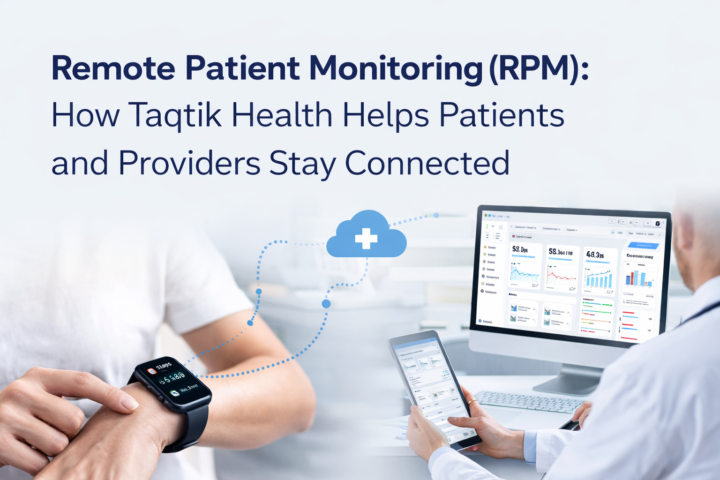
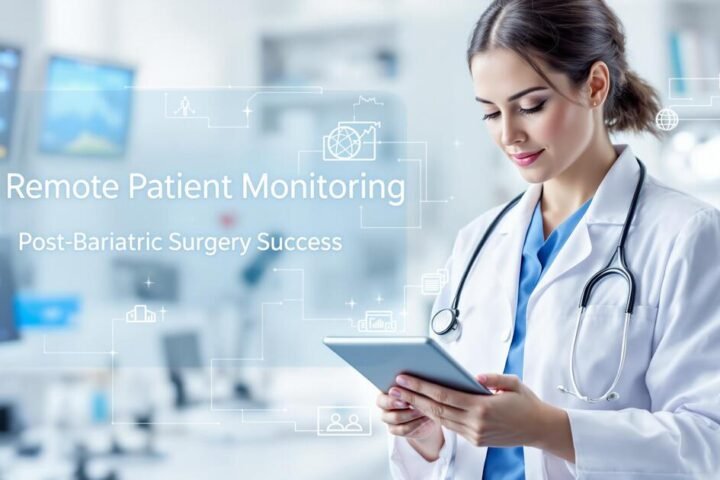


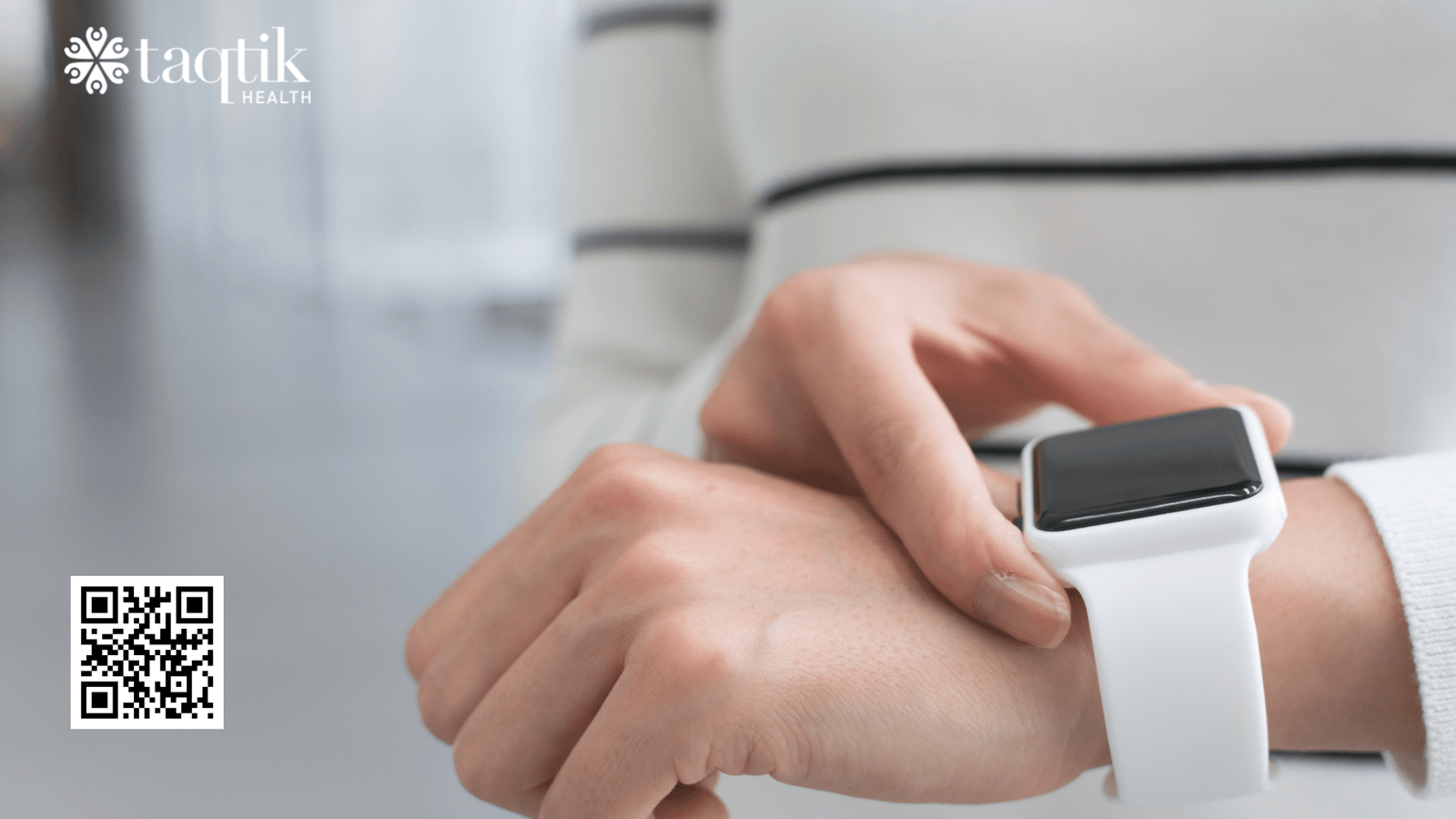

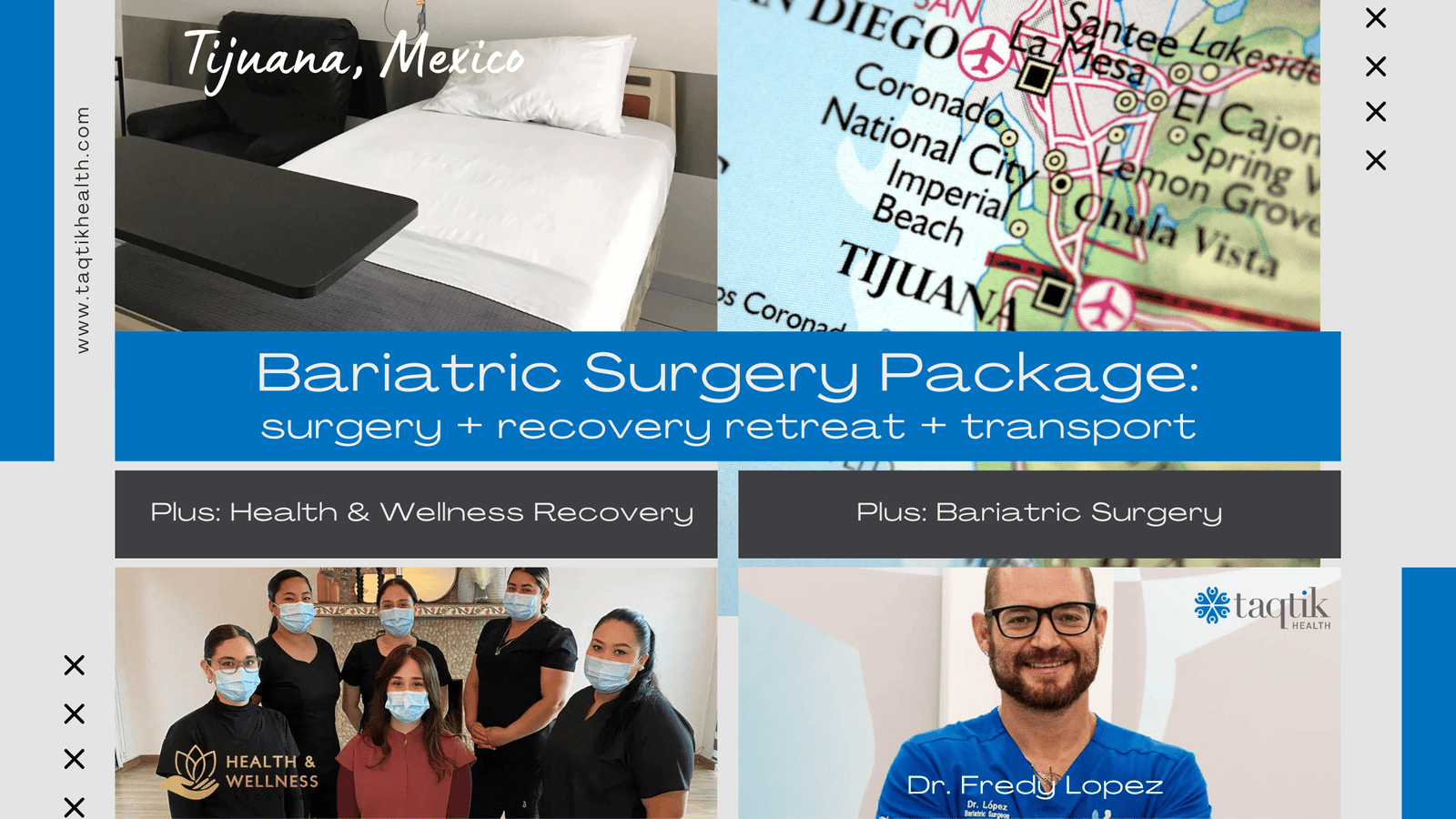
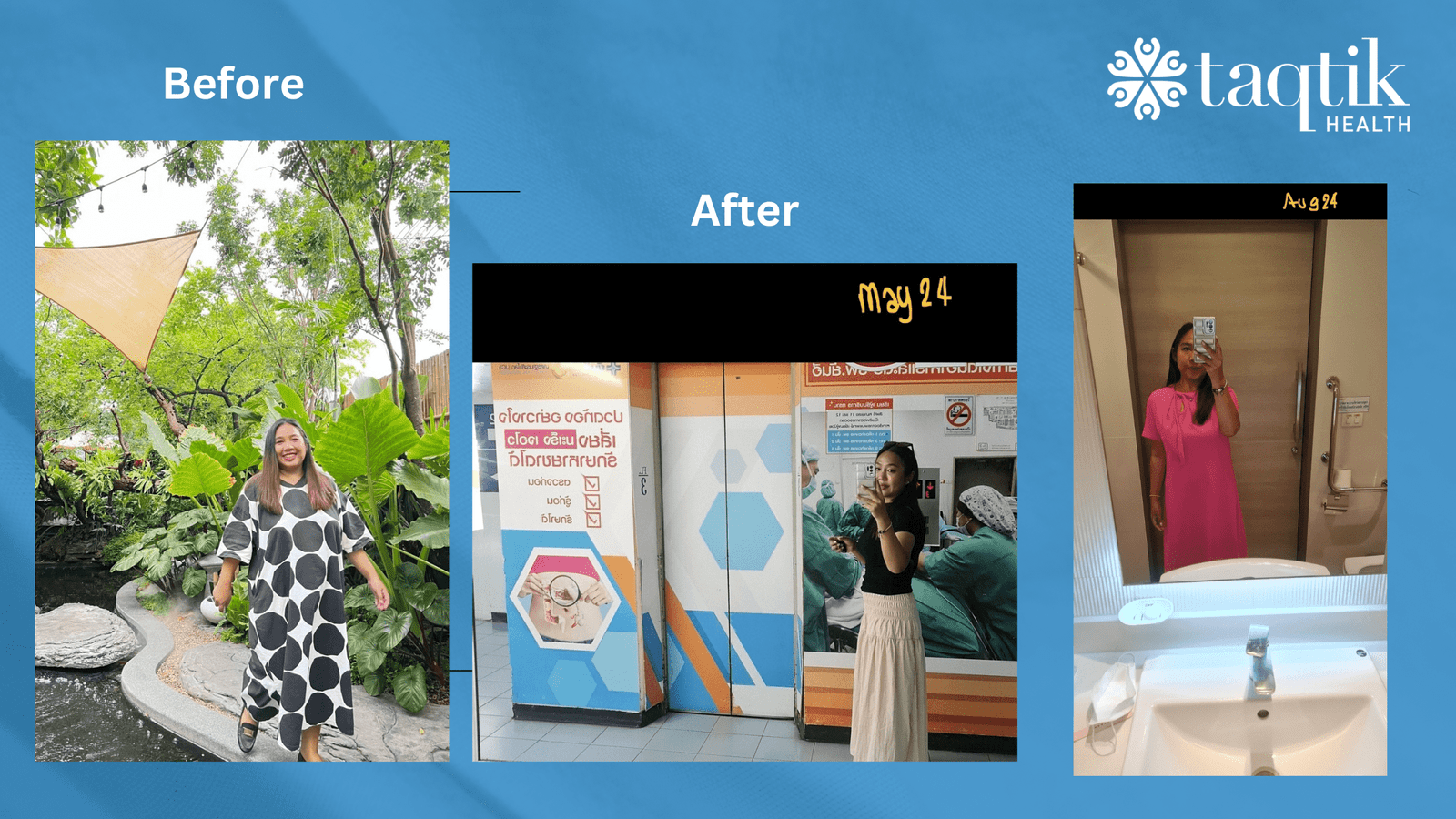

Leave a Comment
(1 Comment)
[…] offerings and embrace new technologies, we invite you to explore the possibilities with us. How has RPM technology impacted your health management, and what future advancements are you excited to see in this space? […]